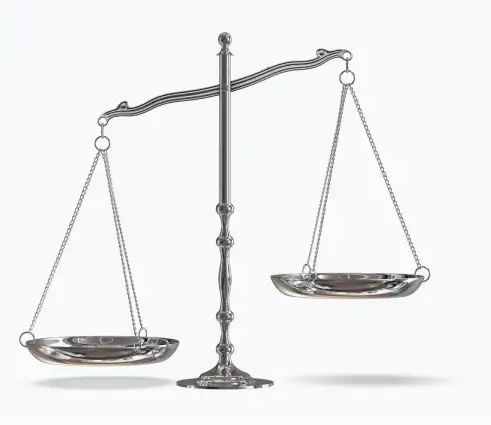Many citizens of our state were, or still are, the owners of shares of certain companies. Simple registered shares give the holder certain rights, in particular, to participate in the management of a joint-stock company, to receive part of its profit and information on business activities. Shares give their owners votes at the general meeting of the company.
Joint-stock companies can carry out their issue, including for further sale. That is why we will consider the procedure of dematerialization of ordinary registered shares.
Why is dematerialization carried out?
Previously, the owners of the shares issued
certificates for the certification of their rights.However, in March 2011, the norms of the Law About Joint Stock Companies came into force regarding the form in which shares may exist – it is exclusively non-documentary. Therefore, the joint stock companies had the duty to dematerialize them. Non-documentary form is an account,
i.e., an account in a certain depositary institution, which confirms the rights of the shareholder. This procedure was regulated by the relevant provisions approved by the decision of the National Commission on Securities and Stock Market dated May 30, 2013 (currently in force) and is necessary for:
• Compliance with the requirements of the legislation;
• keeping the register of share holders;
• transfer of shares to non-documentary forms;
• Providing rights to shareholder.
The main actions of the joint-stock company
General meeting of the joint stock company makes a decision on dematerialization. Next, the company has 10 days to:
• certificate of issue of shares in the documentary form shall be replaced by a certificate of
registration of issue of shares in a non-documentary form;
• to notify personally all share holders;
• to conclude an agreement on servicing the issue of securities with the National Depository;
• enter into an agreement on the opening of securities accounts with the selected custodian.
The latter will open the account to those owners who have not immobilized them on their own;
• provide:
1) transfer of the register of owners of dematerialized shares to the selected custodian;
2) the opening by the custodian of accounts to the owners of shares;
3) the transfer of the registration of ownership of the shares to the custodian, if not all owners
immobilized the shares.
A custodian is a depository institution that is chosed by a joint-stock company to service stock
accounts of equity holders. National Depository is an institution serving as a joint stock
company. The company is obliged to indicate information about the above mentioned institutions
in the notification to the shareholders.
The owner of the shares can independently translate them into a non-documentary form. To do
this, you need to open a securities account with the custodian. A depository with which an
agreement on the opening and maintenance of securities accounts has been concluded, assigns
the rights to the shares within 30 business days from the day the order was received from the
joint-stock company about the transfer to the accounts of the owners of the rights to the shares.
Risks for shareholders
During immobilization, share holders may face the following issues:
• A joint stock company may not transfer data to all shareholders.
• The custodian can not to open a security account if the owner has not filed a corresponding
application.
• Owners of shares may be mislead by fake messages.
As for the latter, it may be a message that the person is obliged to return the certificates of
ownership of the shares during a certain period, although this is not provided by normative legal
acts. A similar situation may arise when a joint stock company notifies shareholders of the loss
of share rights due to the fact that the latter have not translated them independently into a non-
documentary form or have not returned certificates in time. Messages of this kind contain false
information and can not result in any consequences for stockholders.
If the owner himself does not immobilize the shares, he in no case loses his rights to securities,
because dematerialization of shares and the subsequent provision of rights to them – the
responsibility of a joint-stock company. This position is confirmed by the judicial practice. Case
No. 10/5009/2524/11 was considered in the Commercial Court of Zaporizhzhia Oblast. The
essence of the matter is that Dniproenergo OJSC has made a decision on dematerialization of
shares, but during the transfer to the custodian of the stockholders' register, it did not submit data
on all owners. The person who was the owner of 30 shares appealed to the court to restore the
corporate rights to the shares he owns. The court found that since the plaintiff was the owner of
the shares but was not registered in the register of owners, this, in turn, led to the fact that in the
process of dematerialization, the shares belonging to the plaintiff were not transferred to the non-
documentary form, which in turn led to the violation of corporate rights of the latter. The court
ordered the custodian of Dniproenergo’s shares to credit the securities belonging to the plaintiff
in the securities belonging to him. Consequently, the inaction of the owner of the shares, in
relation to their independent immobilization, in no way affects the rights of them.
How to confirm the ownership of the shares?
According to the Law "About the Depository System of Ukraine" after the transfer of the latter to
a non-documentary form, the rights to the shares are confirmed by an extract from the account
provided by the custodian to the proprietor on his application, to which a corresponding request
is attached, a copy of the passport and identification taxpayer numbers. If the custodian refuses
to provide such an extract, the latter may be required to do it by the court.
The AL BK Partners will help to confirm your share rights and to protect them in court in case
of violation.


